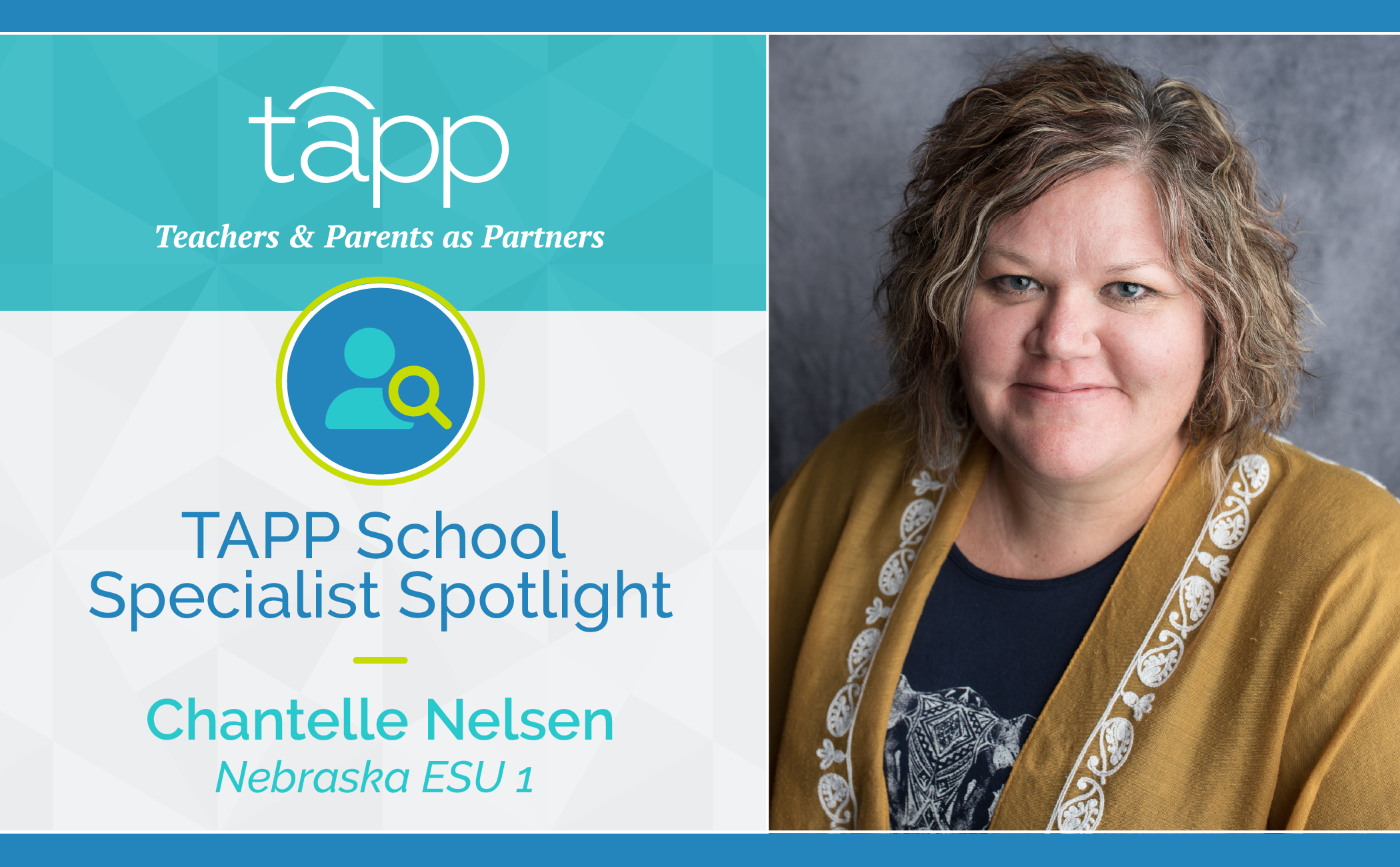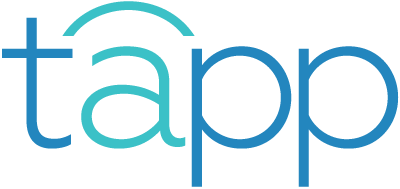
TAPP School Specialist Spotlight: Chantelle Nelsen, Nebraska ESU 1
May 18, 2023
Q & A with Chantelle Nelsen
Nebraska ESU 1 Tower School Program Coordinator
2022-23 School Specialist for TAPP
Teachers and Parents as Partners (TAPP) is a research-based intervention that builds relationships between parents and teachers to help children succeed. It has been proven to help children do better at school, get along with others and show self-control in the classroom. Led by a school specialist, the TAPP process involves three to four collaborative meetings over approximately eight weeks. The parent, teacher, and school specialist work as a team to identify a child’s strengths, what is getting most in the way of their learning, and what they can do together to help the student succeed.
Chantelle Nelsen, TAPP school specialist and Nebraska ESU 1 Tower School program coordinator, shares her perspective on the success of the TAPP intervention through her work with families and teachers in several rural communities, including the village of Winside.
Chantelle provides insight on the powerful impact of effective family-school partnerships and collaborative problem-solving that results in better outcomes for kids. Her wide range of professional responsibilities, including delivery of professional development for educators and supporting the behavioral needs of students, has shed light on the need for teachers and parents to build their toolkits to support kids together in their home and school environments.
Read the full Q & A below.
Tell us about your journey in education and your current role.
Chantelle Nelsen: Education wasn’t always the plan. In undergraduate school, I wanted to study political science and pre-law. The desire to help the underdog and make wrong things right has always been with me, and has translated well in my current role. In college, I was hired as a one-on-one para, and worked with Jean Dorcey, who was a classroom teacher at the time. Jean is now a professor at Wayne State College.
In my current role at ESU 1, I oversee programming at Tower School and provide outreach services to school districts in northeast Nebraska. My duties include student support systems management, IEP meeting facilitation, and navigating problem-solving with families and schools. I have realized that often people need to first step back and ask, “What is conflict?” All the things I do in my profession fit in well with the TAPP program. I see TAPP as a way for teachers and families to navigate conflicts and come together.
As a parent of school-age children, a negative personal experience in the past with a school system also led me to this work. I honestly did not feel comfortable with the communication I was having with my child’s school. As a professional, I did not want to be the cause of similar discomfort to any parent, teacher or child. As a result, I became a better teacher and a better parent.
What interested you in participating in TAPP?
CN: For me, it was about the bigger picture. I liked the idea of being a part of something larger, like research, and helping improve systems for families and schools. I am a lifelong learner, and I am committed to growing and adding to my “toolbox” of supports and strategies to help students reach their potential. TAPP fits well with my understanding of behaviors and why they occur. TAPP has a strong focus on parent and teacher partnerships, and parent participation just makes sense to me.
Working with teachers and families, what differences do you notice with TAPP?
CN: Using the TAPP process, I watched parents and teachers become more independent with their productive partnership. They know what they want to accomplish, and they move forward together. Usually, the only communication a parent has had from school about their child’s needs has been negative. Too often, people come together because things have been bad.
With TAPP, you nurture the partnership. People stop assuming negative things and they shift the focus from negative to positive. As a facilitator, I focus on the strengths of the student and the family. I step back a little as the parent gains their voice. The parent and teacher start to naturally form a connection. It is important that both parties see their mutual intent to do what is best for the child to help them be successful.
With TAPP, you nurture the partnership. People stop assuming negative things and they shift the focus from negative to positive.
How does TAPP support kids’ mental health and social-emotional needs?
CN: Through the TAPP process, I watched a student improve relationships and interactions with adults. He didn’t hate going to school anymore and he felt more welcomed and accepted.
It would be great to collect data from students about their experiences with TAPP. The parents’ perception of school wasn’t negative anymore after participating in TAPP. A child picks up on the dichotomy between home and school when it changes for the better.
Mental health and behavior are connected. Behavior is improved by changing environmental responses and adding protective factors, like relationships, skill building support, resources and programming. With TAPP, we are improving the mental health among adults, as well as kids.
Mental health and behavior are connected. Behavior is improved by changing environmental responses and adding protective factors, like relationships, skill building support, resources and programming. With TAPP, we are improving the mental health among adults, as well as kids.
As a TAPP school specialist, what are the benefits of the individualized coaching you received through the project?
CN: I enjoy time with my coach. Having another professional to talk to was very helpful, especially as someone who processes through talking. TAPP coaching helped me create and set personal goals. Coaching also helped me with debriefing, accountability, reflection and follow-up. Accountability was significant for me.
How has TAPP changed your typical practices?
CN: TAPP allows me to be more of a guide. I am better able to help parents and teachers do what they need to do. Parents want to help make decisions and sometimes they feel like school is just telling them what to do. TAPP has reinforced the need for parent voice and involvement. TAPP makes parents and home an equal priority with school.
In what ways has TAPP influenced your thinking about the professional development needed for educators and school specialists?
CN: Starting with training for pre-service teachers, a solid understanding of human behavior is needed. How do we navigate conflict and difficult conversations? How can we encourage and prioritize family engagement? How can we make the time to ensure we are having positive conversations with parents? Additionally, we need to change our mindset to be more preventative when we think about the functional approach to behaviors and reinforcers. Ultimately, we need to prepare people to have the right conversation.
How does TAPP enhance school equity goals?
CN: Equity is about providing individuals with what they need. TAPP focuses on one child, one family and one teacher. How much more individualized can you get?

